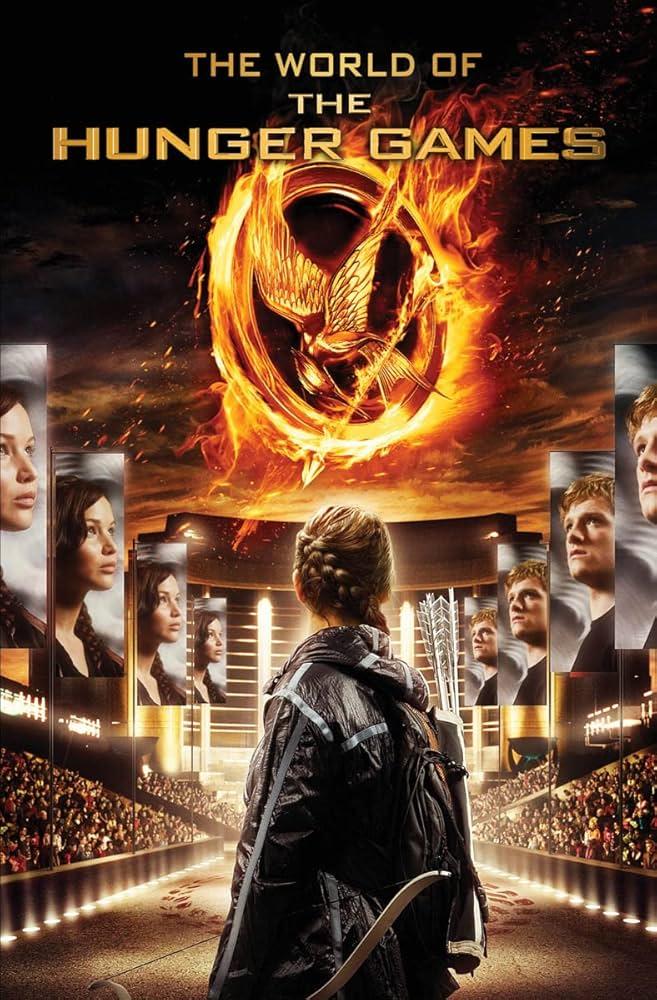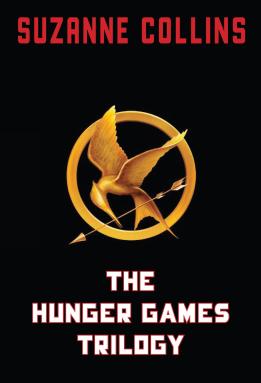In recent years, the cultural phenomenon of “The Hunger Games” has captivated audiences worldwide, sparking debates about its underlying themes and societal implications. At its core, the series presents a dystopian narrative that juxtaposes survival and spectacle, raising questions about the extent to which modern society is enthralled by violence as entertainment. As we delve into the world of Panem, where children are pitted against each other in a fight to the death broadcasted for the masses, it becomes imperative to examine whether this fictional universe serves as a mirror reflecting our own complex relationship with violence. By critically analyzing the themes and societal structures within “The Hunger Games,” this article seeks to explore the unsettling parallels between the series and contemporary culture, prompting us to question the ethical boundaries of entertainment and the societal fascination with brutality.
Examining the Cultural Obsession with Violent Entertainment
The juxtaposition of dystopian survival and state-sponsored violence in “The Hunger Games” serves as a stark lens through which we can explore society’s complex relationship with violent entertainment. This cultural phenomenon isn’t limited to Suzanne Collins’ fictional universe; it echoes through various forms of media, reflecting a deep-seated fascination with conflict and brutality. In examining this obsession, we can identify several key factors:
- Historical Precedents: From gladiatorial combats in ancient Rome to modern-day combat sports, history is replete with examples of societies that have celebrated violence as a form of entertainment.
- Psychological Thrill: The adrenaline rush associated with witnessing violence can provide a sense of excitement and escapism, captivating audiences and keeping them engaged.
- Social Commentary: Violent narratives often serve as a medium for critiquing societal structures, highlighting issues such as inequality, oppression, and the desensitization to violence.
While some may argue that such media desensitizes viewers or even glamorizes brutality, others contend that it provides a platform for critical reflection on the human condition and societal norms. “The Hunger Games,” in particular, challenges its audience to consider the ethical implications of a world where violence is not just a means of survival, but a form of spectacle.

Analyzing the Societal Impact of Dystopian Narratives
The juxtaposition of dystopian narratives and their societal implications often leads to a critical examination of humanity’s longstanding infatuation with violence. “The Hunger Games,” a notable example within this genre, presents a world where societal structure thrives on the spectacle of televised combat. This premise encourages viewers to question the ethical boundaries of entertainment and the extent to which society glorifies violence. Through the portrayal of the Capitol’s opulent spectators and their desensitization to human suffering, the narrative suggests that modern audiences might similarly be engrossed by violent displays, perhaps as a means of escapism or a reflection of deeper societal issues.
- Media Consumption: The series challenges audiences to consider their own consumption of violent media and the potential normalization of aggression.
- Power Dynamics: It explores how violence is often used as a tool for control, reflecting on real-world power structures.
- Ethical Entertainment: Raises questions about the morality of deriving entertainment from the suffering of others.
By framing violence as both a spectacle and a method of societal control, “The Hunger Games” provides a mirror to contemporary issues, urging a reflection on whether such narratives are a mere form of entertainment or a stark warning about the direction of societal values. This exploration invites critical dialogue on the role of dystopian stories in both mirroring and potentially influencing modern societal norms.

Understanding the Psychological Appeal of Violence in Media
The allure of violence in media is a complex phenomenon that intertwines with human psychology in various ways. The Hunger Games, with its brutal depiction of survival and conflict, serves as a stark mirror to society’s fascination with violence. This attraction can be attributed to several psychological factors:
- Adrenaline and Excitement: The visceral thrill of witnessing danger and conflict can trigger an adrenaline rush, providing an intense emotional experience that audiences find compelling.
- Exploration of Moral Boundaries: Violent scenarios often push characters to their ethical limits, allowing viewers to vicariously explore their own moral compasses and question societal norms.
- Empathy and Catharsis: Watching characters endure violence can evoke empathy, while also offering a cathartic release as viewers process their own emotions and experiences through the narrative.
These elements not only captivate audiences but also provoke critical reflection on the underlying societal values that permit such narratives to thrive. As media consumers, it is crucial to consider how these portrayals influence our perceptions of violence and its role in human interaction.

Proposing Solutions for a Balanced Media Consumption
In addressing the allure of violence depicted in “The Hunger Games” and its potential reflection on contemporary society, we must first consider approaches to cultivating a more balanced media diet. Encouraging media literacy is crucial; this involves educating audiences on how to critically analyze and interpret the content they consume, recognizing underlying themes and intentions. Schools and community programs can play a pivotal role by integrating media studies into their curricula, fostering a generation that questions rather than passively absorbs violent narratives.
Moreover, curating a diverse media palette can offer audiences a broader perspective, moving beyond sensationalized violence to include content that promotes empathy and understanding. This can be achieved by supporting independent filmmakers and content creators who prioritize storytelling that challenges societal norms and encourages introspection. Platforms can also develop algorithms that highlight content diversity, ensuring that viewers are exposed to a range of genres and narratives. By taking these steps, society can better navigate the complex relationship between media consumption and its impact on social behavior.
In Summary
the parallels between “The Hunger Games” and modern society’s fascination with violence prompt critical reflection on our cultural and media consumption habits. While the dystopian narrative offers a stark exaggeration of societal issues, it also serves as a mirror, reflecting underlying truths about human nature and the complexities of power dynamics. As we continue to engage with such narratives, it becomes essential to question the impact of this fascination on our collective psyche and consider the ethical implications of our entertainment choices. By examining the connections between fiction and reality, we can foster a deeper understanding of how media shapes our perceptions and potentially influences societal norms. Ultimately, “The Hunger Games” challenges us to scrutinize not only the content we consume but also the values we uphold, urging a more conscious engagement with the stories that captivate us.
